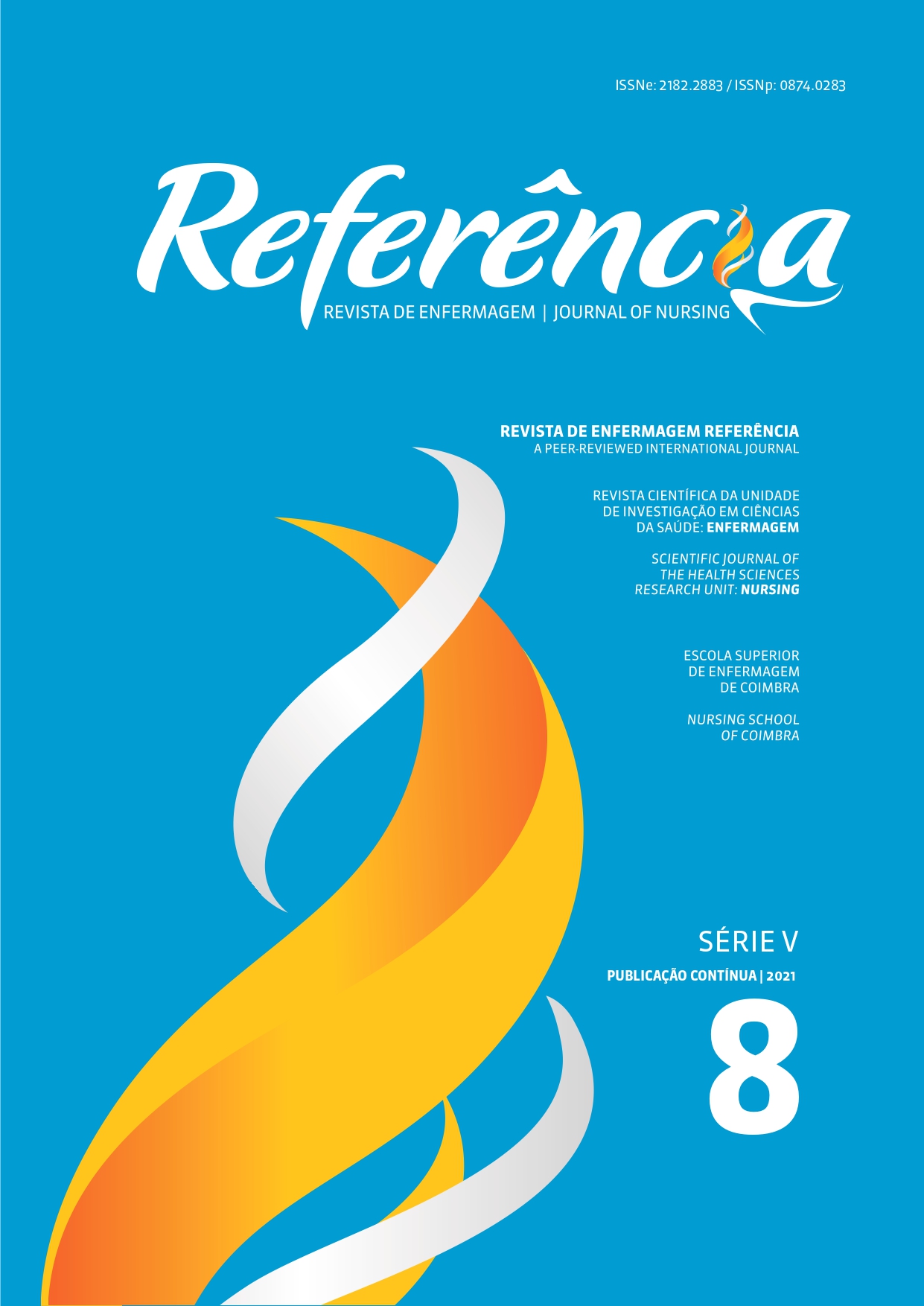Mothers’ and fathers’ learning needs during pregnancy
DOI:
https://doi.org/10.12707/RV20217Keywords:
pregnancy, self-care, educational needs assessment, nursing careAbstract
Background: The adjustment to pregnancy implies that those who experience it incorporate a set of skills for health promotion. The disciplinary knowledge supporting the identification of learning needs is still limited.
Objective: To identify mothers’ and fathers’ learning needs to promote self-care during pregnancy.
Methodology: Cross-sectional and qualitative study with 80 mothers and 20 fathers intending to become pregnant or with a previous or current pregnancy. Ethical principles were safeguarded. Interviews were conducted between January and June 2016. Data were subjected to content analysis (grounded analysis) using NVivo11.
Results: The learning needs identified by mothers and fathers were divided into the following categories: preparing for pregnancy, adjusting to pregnancy, caring for oneself, caring for the baby (fetus), and ensuring health surveillance.
Conclusion: Three domains of care needs emerged in the adjustment to pregnancy: body process, self-care/self-monitoring, and fetal health. Mothers and fathers have overlapping needs, so the couple can be considered a client of care.
Downloads
References
Ahman, A., Sarkadi, A., Lindgren, P., & Rubertsson, C. (2016). It made you think twice: An interview study of women’s perception of a webbased decision aid concerning screening and diagnostic testing for fetal anomalies. BMC Pregnancy and Childbirth, 16(267), 1-10. https://doi.org/10.1186/s12884-016-1057-y
Almalik, M., & Mosleh, S. (2017). Pregnant women: What do they need to know during pregnancy? A descriptive study. Women and Birth, 30(2), 100-106. https://doi.org/10.1016/j.wombi.2016.09.001
Andersson, E., Norman, A., Kanlinder, C., & Plantin, L. (2016). What do expectant fathers expect of antenatal care in Sweden? A cross-sectional study. Sexual & Reproductive Healthcare, 9, 27-34. https://doi.org/10.1016/j.srhc.2016.06.003
Broberg, L., Ersbøll, A., Backhausen, M., Damm, P., Tabor, A., & Hegaard, H. (2015). Compliance with national recommendations for exercise during early pregnancy in a danish cohort. BMC Pregnancy and Childbirth, 15(317), 1-8. https://doi.org/10.1186/s12884-015-0756-0
Cardoso, A. M. (2011). Tornar-se mãe, tornar-se pai - Estudo sobre a avaliação das competências parentais [Tese de Doutoramento, Universidade Católica Portuguesa]. Repositório Institucional da Universidade Católica Portuguesa. https://repositorio.ucp.pt/bitstream/10400.14/20745/1/Tornar-se%20mae_tornar-se%20pai_Estudo%20sobre%20avaliacao%20compet%C3%AAncias%20parentais.pdf
Ceulemans, M., Calsteren, K., Allegaert, K., & Foulon, V. (2019). Beliefs about medicines and information needs among pregnant women visiting a tertiary hospital in Belgium. European Journal of Clinical Pharmacology, 75, 995–1003. https://doi.org/10.1007/s00228-019-02653-w
Direção-Geral da Saúde. (2015). Programa nacional para a vigilância da gravidez de baixo risco. https://www.dgs.pt/em-destaque/programa-nacional-para-a-vigilancia-da-gravidez-de-baixo-risco.aspx
Entsieh, A., & Hallström, I. (2016). First-time parents’ prenatal needs for early parenthood preparation: A systematic review and meta-synthesis of qualitative literature. Midwifery, 39, 1-11. https://doi.org/10.1016/j.midw.2016.04.006
Hughson, J., Daly, O., Woodward-Kron, R., Hajek, J., & Story, D. (2018). The rise of pregnancy apps and the implications for culturally and linguistically diverse women: Narrative review. JMIR Mhealth Uhealth, 6(11), e189. https://doi.org/10.2196/mhealth.9119
Jones, C., Wadephul, F., & Jomeen, J. (2019). Maternal and paternal expectations of antenatal education across the transition to parenthood. British Journal of Midwifery, 27(4), 235-241. https://doi.org/10.12968/bjom.2019.27.4.235
Kamali, S., Ahmadian, L., Khajoue, R., & Bahaadinbeigy, K. (2017). Health information needs of pregnant women: Information sources, motives and barriers. Health Information & Libraries Journal, 35, 24–37. https://doi.org/10.1111/hir.12200
Lucas, C., Charlton, K., & Yeatman, H. (2014). Nutrition advice during pregnancy: do women receive it and can health professionals provide it? Maternal and Child Health Journal, 18, 2465–2478. https://doi.org/10.1007/s10995-014-1485-0
Mniszak, C., O`Brien, H., Greyson, D., Chabot, C., & Shoveller, J. (2019). Nothing`s available: Young fathers` experience with unmet informations needs and barriers to resolving them. Information Processing and Management, 57(2), 1-14. https://doi.org/10.1016/j.ipm.2019.102081
Palsson, P., Persson, E., Ekelin, M., Hallstrom, I., & Kvist, L. (2017). First-time fathers experiences of their prenatal preparation in relation to challenges met in the early parenthood period: Implications for early parenthood preparation. Midwifery, 50, 86-92. https://doi.org/10.1016/j.midw.2017.03.021
Ordem dos enfermeiros. (2018). Regulamento dos Padrões de Qualidade dos Cuidados Especializados em Enfermagem de Saúde Materna e Obstétrica. https://www.ordemenfermeiros.pt/media/8194/ponto-5_regulamento-padr%C3%B5es-de-qualidade-ce-eesmo-1.pdf
Orem, D. E. (2001). Nursing: Concepts of Practice (6th ed.). Mosby.
Strauss, A., & Corbin, J. (2008). Pesquisa qualitativa: técnicas e procedimentos para o desenvolvimento de teoria fundamentada (2ª ed.). Artmed.
Wall, K., Cunha, V., Atalaia, S., Rodrigues, L., Correia, R., Correia, S., & Rosa, R. (2016). Livro Branco: Homens e igualdade de género em Portugal. Instituto de Ciências Sociais da Universidade de Lisboa. https://repositorio.ul.pt/handle/10451/26649
World Health Organization. (2018). WHO recommendations on antenatal care for a positive pregnancy experience: Summary highlights and key messages from the world health organization’s 2016 global recommendations for routine antenatal care. https://apps.who.int/iris/bitstream/handle/10665/259947/WHO-RHR-18.02-eng.pdf






















